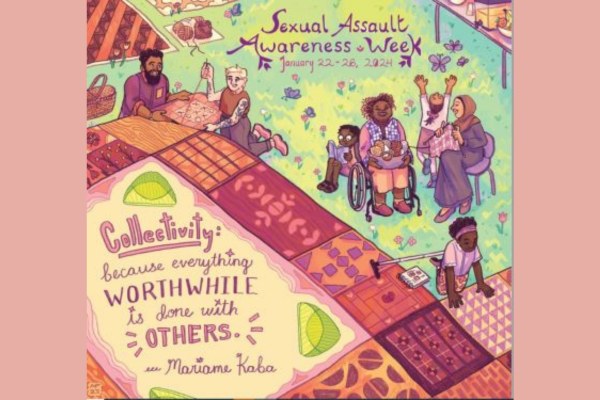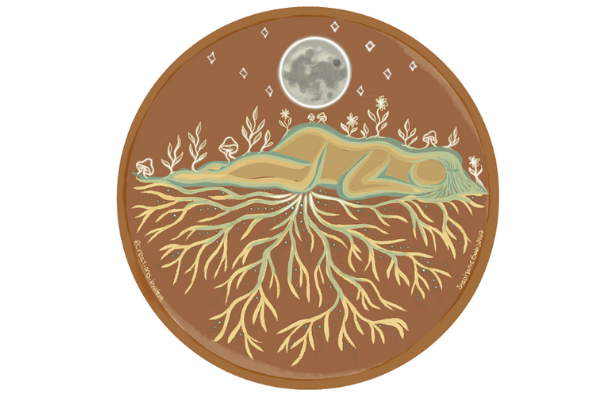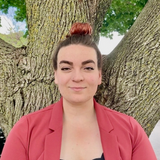Hey there! My name is JC Caramillo and I am currently a candidate for a Bachelor of Health Sciences with a concentration in Biomedical Sciences and a minor in Disability Studies – it’s a long title, I know. Last academic year, I was working with Health Promotion as a placement student and I’ll be returning as a Health Promotion Team Leader for the current academic year. I’m ecstatic to be providing my knowledge and wisdom with you, especially since this will my final year at Carleton University!
Hi everyone, it’s JC! It’s been a while, hasn’t it? If you want to read my previous blog posts regarding first year, succeeding in an online environment, or safer sex during COVID-19, check out the latest posts on Carleton’s Quote the Ravens.
For this blog post, I’ll be tackling language surrounding substance use. I understand language to be a difficult matter to navigate, despite it being used in my conversations with others and, coincidentally, in this blog post. Given that I come partly from a Disability Studies background, I’ve participated in and learned from many conversations about language and how it can be used to stigmatize disability. Similarly, substance use can be stigmatized through language in ways that are not always apparent.
If you haven’t caught it yet, I’ve been using the term substance use, as opposed to substance abuse – that’s because abuse has negative connotations and negative ideas attached to it. When we say substance abuse, the person is associated with these negative connotations, such as disgrace and negligence. When these ideas are attached to a person, they are effectively excluded from society and become outcasts.
Another example would be addict and alcoholic, which can be replaced with person with a substance use disorder and person with an alcohol use disorder, respectively. This suggested change in language points towards person-first language, in which the person is placed primarily to the use of substance. This separates the person from the act of using substances, rather than directly labelling and defining them as a substance user. In some way, person-first language takes on a humanistic understanding of substance use.
Stigmatizing language, such as substance abuse and addict, changes our perspective on people. This negatively affects how people who use substances view themselves, are perceived by other people, interact with others, access healthcare, and finding housing and employment, among other components of life. This is concerning given that 1 in 10 Canadians experience substance use problems. When we indirectly prevent people from accessing healthcare, such as substance recovery and rehabilitation, and finding homes and jobs, we are violating their fundamental human rights to health, housing, and employment. Although this seems like an exaggeration, remember that language is learned from others; therefore, the stigmatizing language we may use is passed onto others who think such terms are acceptable. Think of it as a domino effect – when one person uses stigmatizing language, another person uses it, and another person follows, and so on. It’s a cycle that we, as a society, must disrupt in order to respect those with substance use problems.
If you’re interested in gaining an in-depth perspective, take a look at the work produced by Community Addictions Peer Support Association (CAPSA) that outlines a framework to destigmatize language surrounding substance use. As a short anecdote, I met Gord Garner, the Executive Director of CAPSA on a train in my first year and attended a lecture led by him in my fourth year – it’s interesting how life brings us together, right? Anyways, if you’re in search of more resources, check out CAPSA and Recovery Day Ottawa, which is organized by CAPSA, on their social media platforms (i.e. Facebook, Instagram, and Twitter). Furthermore, if you are interested in participating in support meetings for substance use, check out All People All Pathways, which is a joint program between CAPSA and Carleton University. Lastly, if you’re looking for a Carleton University-based resource, check out Stigma Ends at CU on their socials as well!
Well, that’s all for me! Thank you for reading my blog post and I hope this impacts your perspective on and choice of language regarding substance use.
Recent Quote the Raven Posts
Read the latest from our student Bloggers











 Ask Me
Ask Me